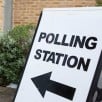
Could Nikki Haley pull off an upset in New Hampshire?
Patrick Flynn
19 January 2024
Donald Trump won a narrow majority of caucus-goers on Monday as Iowa became the first state to vote in this year’s Republican presidential primaries. Despite performing a couple of points worse than the polls expected him to, Trump has climbed to 90% to win the Republican nomination, up from 82% on Monday morning.
Nikki Haley had hoped for a second-place finish to provide some much-needed momentum in her campaign, but 19% of the vote wasn’t enough to pip Ron DeSantis to the runner-up slot.
We now head into perhaps the only primary which looks remotely competitive at this stage, with New Hampshire voting on Tuesday. Here, it’s a straight fight between Trump and Haley — DeSantis polls in single figures and will face an uphill battle to even meet the 10% threshold for delegates.
My current New Hampshire polling average puts Trump on 47% and Haley on 34%. While this doesn’t include any adjustment for the phenomenon of candidates over-performing in states where they are already disproportionately strong, this phenomenon is much more pronounced in caucuses than it is in primaries. Likewise, rates of polling error in caucuses are much higher, meaning there’s less chance for an upset (the RMSE of caucuses across 2016 and 2020 was 16.8 points compared to FiveThirtyEight’s polling averages, compared to 10.1 points for primaries).
The impact of this effect, alongside adjustments for the second preferences of residual Chris Christie/Vivek Ramaswamy voters still in the average, would reduce Trump’s lead to single figures but would not be enough to put Haley ahead. Based on historic error and the number of polls conducted in the state, you’d expect Haley to win New Hampshire around a quarter of the time if the primary were held today, a significantly higher rate than implied by her current odds of 11.0.
New Hampshire is, in election parlance, a ‘modified primary’, somewhere between an open primary (where anyone can vote) and a closed primary (where only registered Republicans can). In this state, both Republicans and those who have not declared a party registration are eligible (but registered Democrats are not). Back in 2016, 55% of those surveyed by CNN’s exit poll were registered Republicans. However, that primary coincided with Hillary Clinton vs. Bernie Sanders on the Democratic side, where the Vermont senator turned a 14-point poll lead into a 22-point victory.
This time around, though, the Democratic primary is an unsanctioned one (and Joe Biden isn’t even on the ballot), so there’s certainly scope to suggest that, once independents are tuned in to the primaries next week, more will choose the Republican option than in 2016.
The share of independents in the electorate could be crucial. Across the most recent polls from Suffolk University, Emerson College and Saint Anselm College, Trump leads registered Republicans by 63% to Haley’s 22%. However, Haley is ahead 47–33% among those without a declared party. On a good day for Haley, independents would make up a narrow majority of the voters. Again, it’s worth noting that this would only dent Trump’s lead, it wouldn’t be enough to take her over the top based on current polling. Furthermore, the opposite could be true, and Haley may be faced with the same turnout problem she had in Iowa, allowing Trump to win in a blowout if independents don’t turn up.
Haley ultimately needs to rely upon a few things: a higher share of independents voting, winning over more undecided voters/Trump supporters, continuing the pattern of disproportionately strong candidates doing even better than expected in New Hampshire, and a fairly normal sized polling error going in her favour. On their own, these things are all realistic; for all to happen at once might be pushing it.
As always in trading, though, one has to back the value rather than the most likely outcome. Based on the context, both current and historical, Haley in double figures is the better value option.
If Trump cannot be beaten here, in one of his weakest states, he’s not going to be beaten anywhere. If he emerges victorious on Tuesday night, the Republican race will be game over (if it wasn’t already).
Patrick Flynn
19 January 2024


